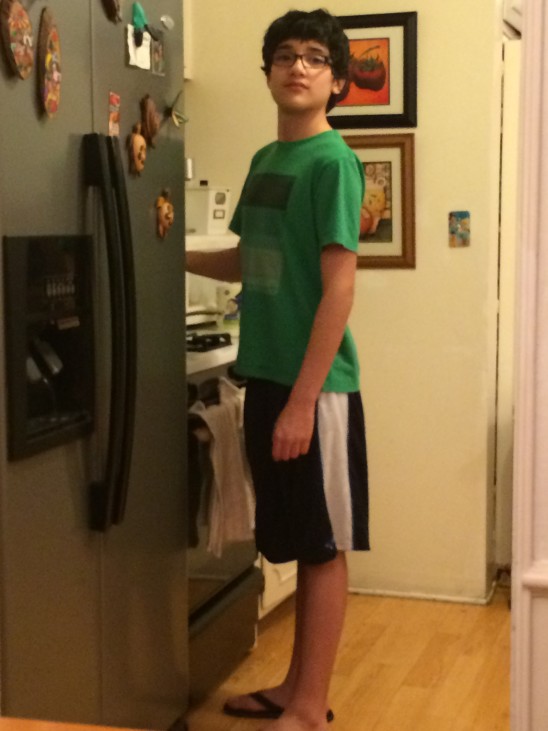The thought of having my twelve-year-old special needs boy at home with me for the entire winter break is terrifying. The Los Angeles Unified School District winter break runs from December 18, 2015 to January 11, 2016. That’s 23 calendar days, 552 hours, 33,120 minutes and 1,987,200 seconds. But, who’s counting? It is not because I do not want to spend time with my son, but how can I keep him busy and entertained without letting him spend his entire day playing video games on his computer or watching TV? My child has high functioning Autism and children on the spectrum are more likely to disengage, avoid, negotiate, and are attracted to electronics more than the average kid. I thought it would be good to develop a learning program. Not an academic type of learning, but more like a life skills, practical thinking kind of program. It is nothing formal, but it will include some things that we all should know and should learn from our parents or care givers.
In our case, I have decided to teach my boy how to cook simple meals. I have started by having him research a couple of recipes on the web for breakfast. However, since it is winter break and I let him sleep late, the breakfast idea is not quite working out. So, I have switched it to dinner. Today was our first day. I decided to teach him to how to cook spaghetti. For me, this is so simple and easy. It is such a no brainer. But when I started teaching my son this simple recipe, I noticed that we worked with numbers, communication, vocabulary, simple problem solving, using kitchen equipment, and just him being more aware of his surroundings and belongings in his own home. He was engaged and loved it.
I started by having him locate a pot. He needed to find it, fill the pot with water to a certain level, turn on the stove, and figure out how long water takes to boil. I had him set timers at ten minute intervals so he could keep checking on the water. This works perfectly with special needs children because many of them need to be reminded constantly and often about tasks so that they can complete them. Using the timer was natural and helpful. Once the water was boiling, I asked him to read the directions on the back of the box.
The directions on this box were a bit complex because there was a table on the back to determine boiling times for very firm, firm, and soft spaghetti. He needed help figuring this out, but he did. He also had a question about what the difference was. Instead of just giving him the easy answer (which I wanted to do), I explained to him that softer spaghetti is digested faster and carbohydrates are released more quickly into the bloodstream and more easily broken down into sugars. This is really bad for us Latinos who are more prone to Diabetes. So, we agreed to cook our pasta firm and to measure our portions. He was receptive and attentive to the explanation because this teachable moment happened organically and within the appropriate context.
I taught him my tricks for making the sauce taste better, which include putting in fresh crushed garlic, fresh herbs, and red wine. After I helped him strain the spaghetti and set it aside, he started the task of going outside and cutting fresh basil and parsley from our potted plants. I had him count the leaves and wash them. He learned what herbs look and smell like. The smell of fresh basil is fabulous! He crushed garlic for the first time and used the garlic crusher. He loved that because he is a boy after all, and boys like to crush things. He learned that there are different kinds of oils because I use different types of oils and directed him to find the olive oil. He stood over the stove stirring and watching the meatballs cook as I explained to him how to get every bit of sauce out of the jar by swishing it with the red wine and then pouring it into the sauce. He was scandalized that I was using liquor to cook and told me so. I explained that many dishes use liquor and make the food taste better.
By the end of the cooking activity, he had listened actively, followed directions, asked questions, washed his hands at least ten times, and learned a few new things. He served bowls of spaghetti, and although he did not say it, I knew he was proud of having cooked something for his family. I was excited that he learned how to cook spaghetti and that he was engaged with me and his home and not his computer. It was fun for both of us and good for the soul. Not bad for our first time in the kitchen. Who would have thought?

